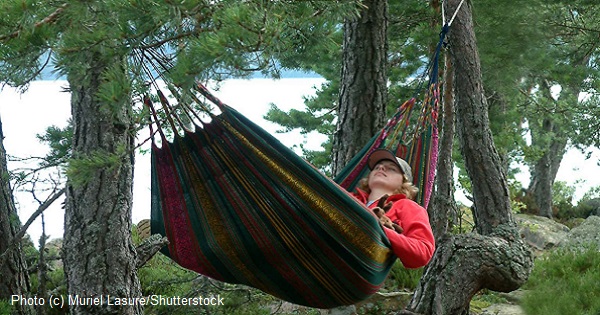|

Lazy Learning –
Interest-Based Learning is the Opposite of Lazy
By Wendy Priesnitz
Few things seem to trouble parents more than the possibility our kids might be lazy. I guess it’s the legacy of that old Puritan Work Ethic – and you don’t have subscribe to any particular religion to suffer from it! Like our current style of public education, which is based on it, the belief that hard work makes you a better human being dates back to the Industrial Revolution. That attitude might have been a useful tool for factory owners trying to make their employees productive, but it can actually be counterproductive today, when working smarter and more creatively are keys to success and happiness.
Funny, then, that our education system still embodies the Puritan Work Ethic. In school, learning is work, and anything else is being lazy. Children’s time is regimented into study periods and programmed in pursuit of “learning outcomes,” and even their out-of-school time is scheduled for homework, tutoring and more lessons or organized activities. Parents and educators mistrust anything that looks like inactivity or being lazy, and bustle around trying to motivate our kids to “find something useful to do.”
Unfortunately for these children, work for its own sake – or because somebody else tells you it’s good for you – just doesn’t make sense. The long hours school students are forced to spend memorizing, cramming for exams and doing homework seldom produce much real learning. Some kids are luckier – and arguably better educated – because they are part of a growing movement dedicated to the realization that learning doesn’t have to be work and that children don’t have to be forced to learn. As life learners, their curiosity is trusted to do the job.
My family was part of the birth of the modern home education movement, four decades ago. When my daughters were children in the 1970s, they didn’t attend school. Nor did they see learning as work. They didn’t use a curriculum or workbooks, nor were they graded or tested. They learned math, reading, writing, science, and geography in the same way they learned to walk and talk. Their learning was experiential and inquiry-based, led by their interests, needs, and curiosity, and facilitated by us when necessary and requested. They explored, investigated, asked questions, experimented, took risks, got ideas and tested them out, made connections, made mistakes, and tried again. It was a rich and joyful way of life, with knowledge and skills picked up both purposefully and incidentally, guided by their innate need to participate in, explore, and make sense of the world around them.
A lot of what they did day by day looked like playing or daydreaming…or like being lazy. In our society, play is the opposite of work. As products of that Industrial Age-induced work ethic, we think of work as unpleasant, something one does during the week in order to afford to play during the week and summer vacation. We have made education into an industrial process, where facts are stuffed into people like so many sausage casings. And that, of course, is work. We have turned a potentially joyful experience stressful, and even hateful, with our schedules and rules and structure. And we have confused our children, who are smart enough to know the difference between the challenge of doing productive work and the numbness that results from busywork that doesn’t accomplish anything.
The basis of life learning, on the other hand, is that children are born to be curious, independent, active, self-directed learners, and will remain that way if school doesn’t dampen their natural curiosity about the world by turning learning into something unpleasant. Children don’t naturally think in terms of math or reading being “hard;” we create those feelings if we force them to learn these skills before they are developmentally or emotionally ready, or before they are interested. When people memorize something without truly understanding it, they haven’t really learned it. When a skill is mastered in the context of an interest and need experienced in the real world, it is truly learned. It might look like “lazy learning,” but it’s actually real learning.
As adults, my daughters pursue their adult lives with the passion, joy, curiosity, and self-reliance that were hallmarks of their life learning years. They see their “work” as fun, and they continue to learn about the world as effortlessly as they did as young children. I think that’s evidence of a successful education and a successful life…and all a parent could wish for.
Wendy Priesnitz is Life Learning Magazine's founder and editor, the author of 13 books, a prolific magazine writer, and the mother of two adult daughters who learned without school.
Copyright © Life Media
Privacy Policy
  
  

|

